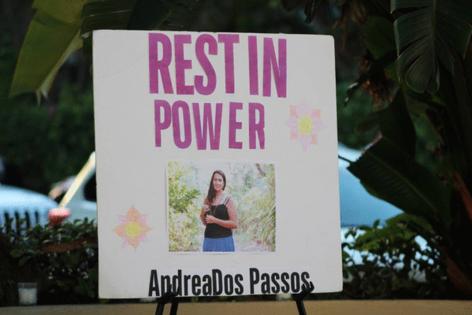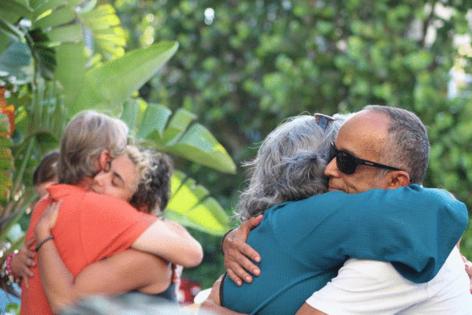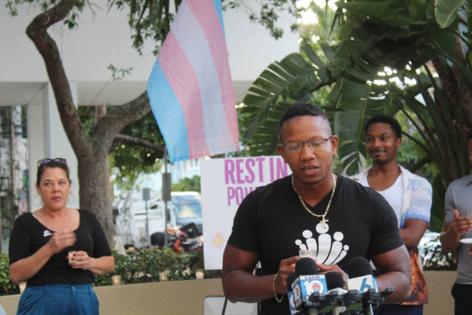Advocates say killing of trans woman highlights shelter needs of Miami LGBTQ community
Published in News & Features
MIAMI — Andrea Doria Dos Passos felt safe at Pridelines.
At the LGBTQ support center in South Beach, where staff knew her as “Maggie,” Dos Passos could put down her bags, shower, eat and listen to music. After first visiting the center earlier this year, she began coming in nearly every day until she was violently killed while sleeping outside the Miami City Ballet last week.
But while Pridelines became like a second home for Dos Passos, finding permanent housing for the 37-year-old transgender woman proved challenging.
Edward Summers, the executive director of Pridelines, said he and other staffers tried to connect Dos Passos with shelter beds, but she repeatedly declined, saying she didn’t want to be bound by the curfews and other restrictions that shelters typically impose. Such spaces, Dos Passos told Summers, wouldn’t allow her to fully be herself.
“She was really a free spirit and wanted to just live her life on her terms,” Summers said. “She really didn’t like the rules and regulations of some of the places we have here in South Florida and Miami.”
The exact circumstances surrounding Dos Passos’ gruesome killing are still under investigation. Gregory Fitzgerald Gibert is facing a first-degree murder charge in the death of Dos Passos, who was beaten to death with a pipe as she slept next to the ballet auditorium in Miami Beach. Police say they have yet to discover a motive.
But advocates for the homeless and LGBTQ populations say the tragedy underscores the need for shelter that caters to the LGBTQ community and keeps its members safe. Summers said Miami-Dade County doesn’t have any shelters specifically for LGBTQ people.
“The system failed because we do not have adequate housing, or any housing, for LGBTQ members in our community in Miami-Dade County,” Summers said. Several of his clients have left shelters, he said, because “they didn’t feel safe, they felt harassed, they felt like they had to be somebody they weren’t.”
Dos Passos’ stepfather, Victor Van Gilst, said Dos Passos had been struggling with her mental health since she was around 25 and lived at various points with him and her mother, Ana, at their Coral Gables home.
Dos Passos was living in San Francisco when she transitioned three or four years ago, Van Gilst said, and also spent eight months at Agape, a Miami nonprofit that offers a residential treatment program for women struggling with substance abuse, mental illness and co-occurring disorders.
...continued
©2024 Miami Herald. Visit at miamiherald.com. Distributed by Tribune Content Agency, LLC.












Comments